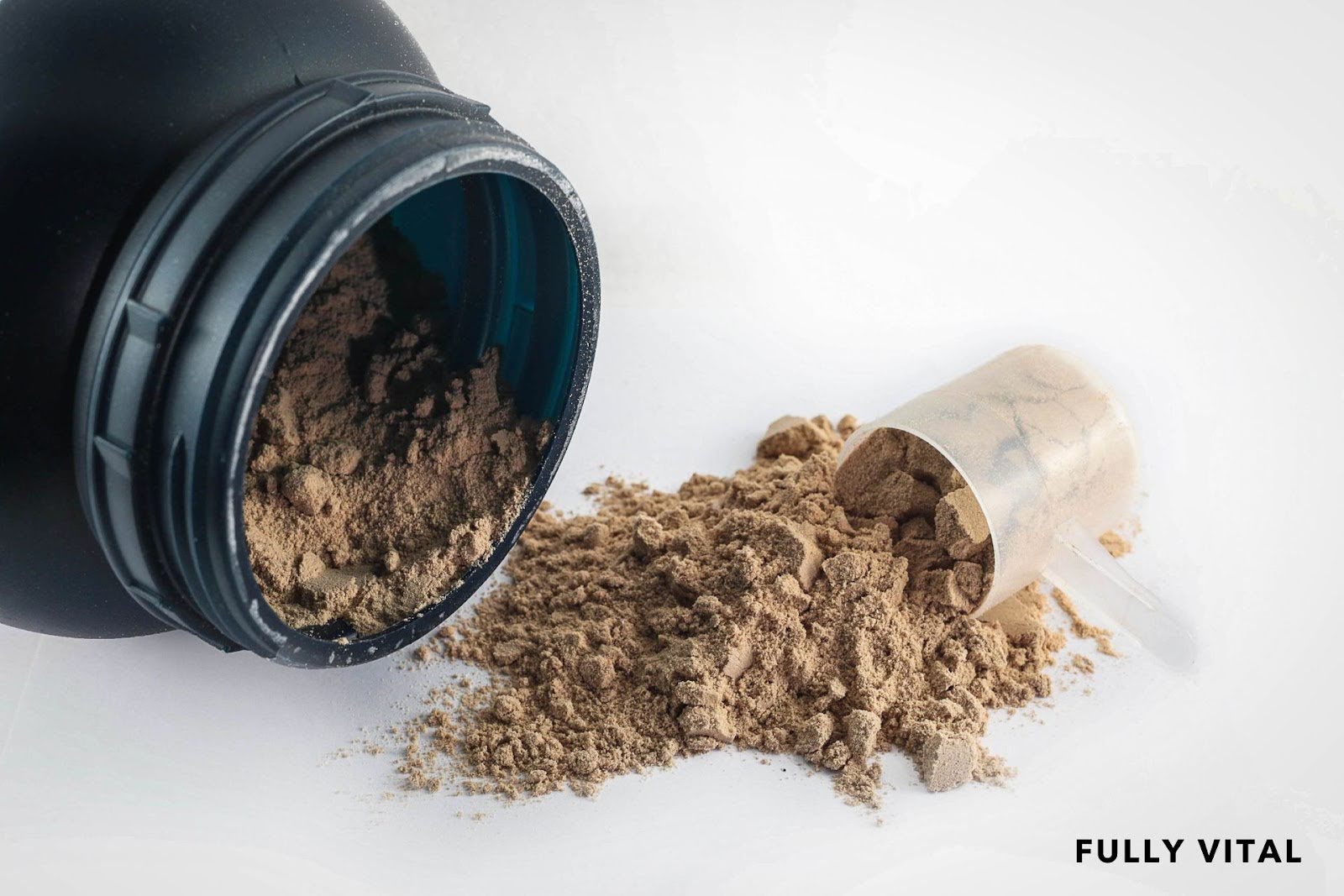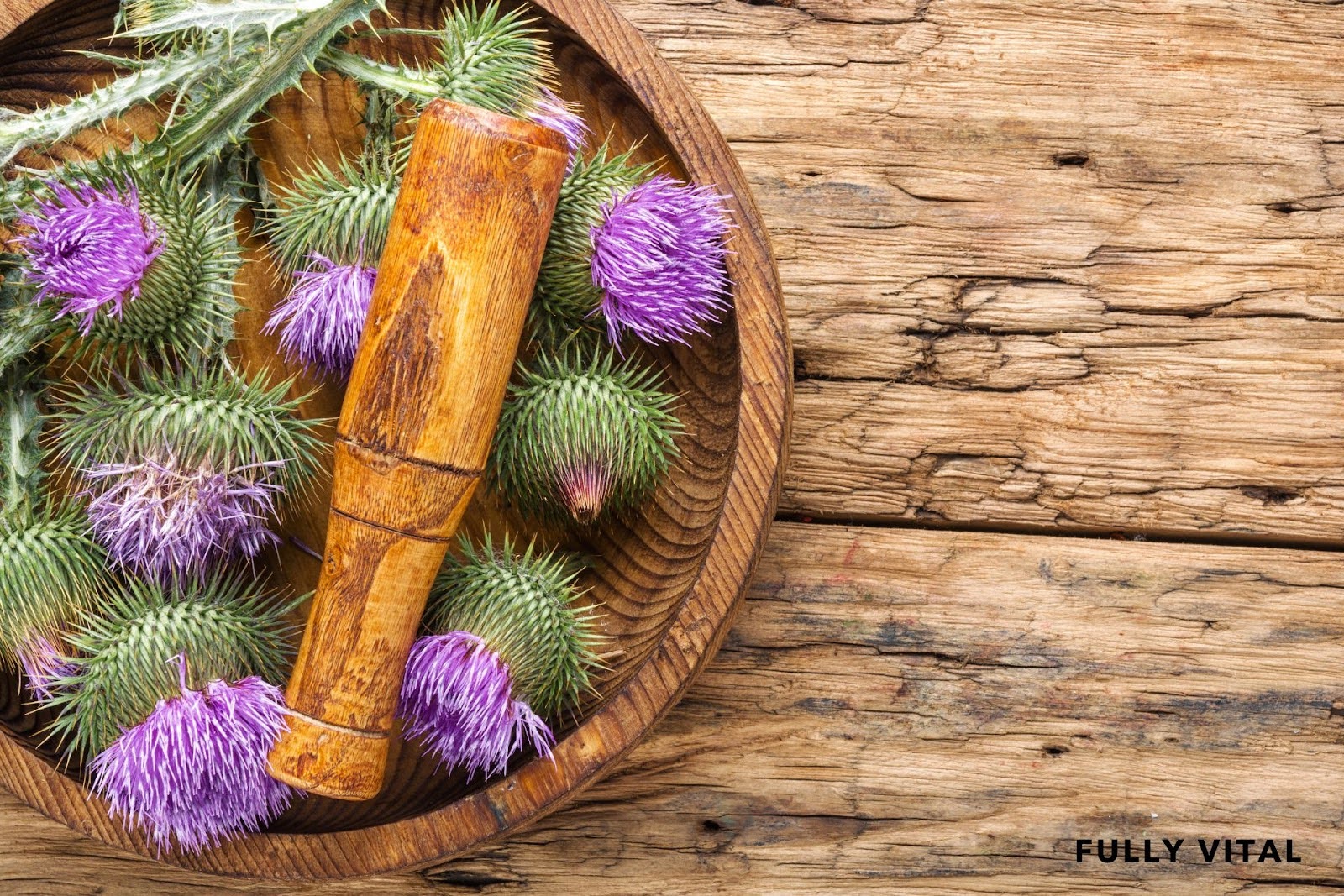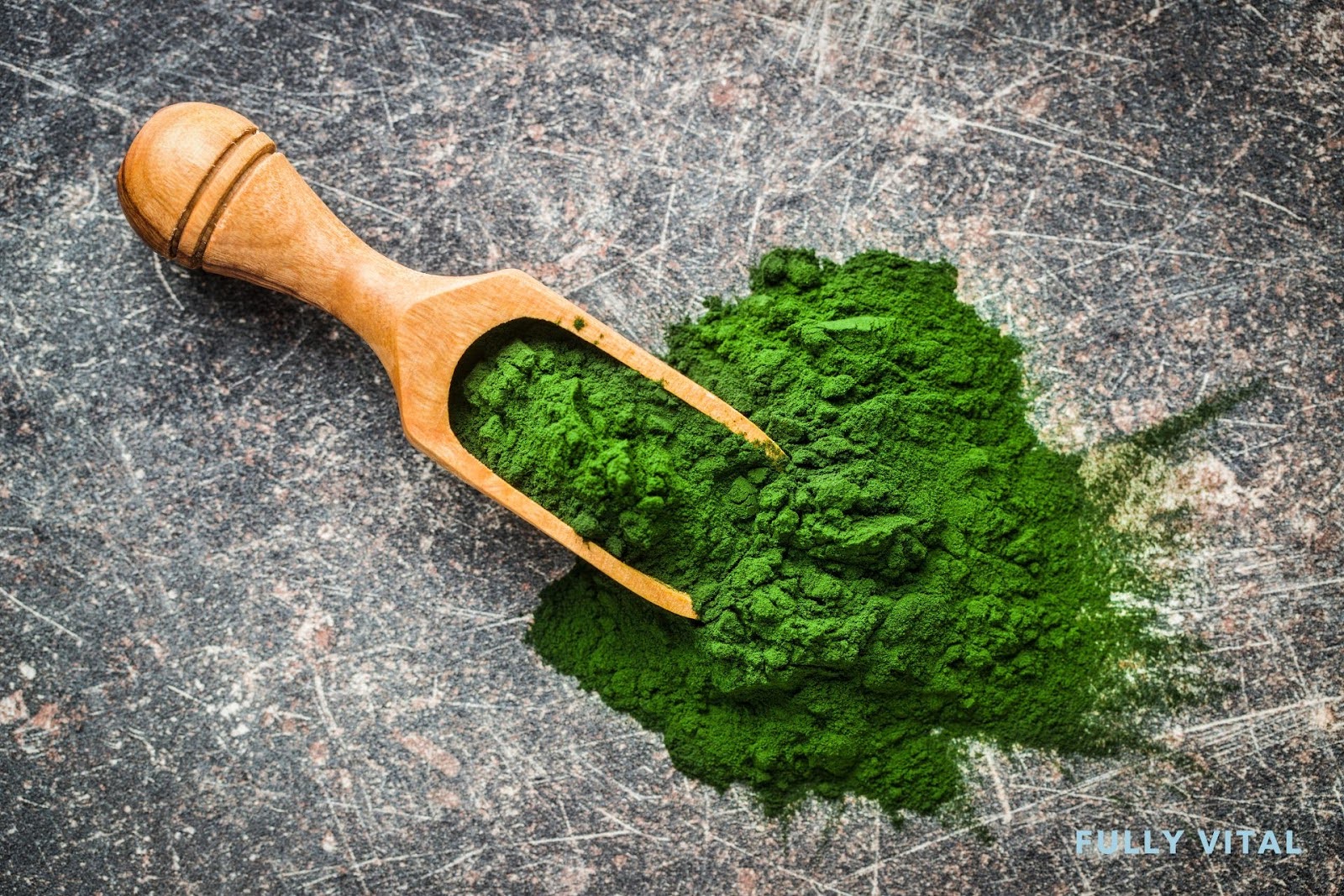
Whey Protein: Strengthen Your Strands
In the quest for luscious, strong hair, the conversation often turns to topical treatments and high-tech hair care products.
However, the foundation of healthy hair lies not just in what we put on our heads, but also in what we feed our bodies.
Protein, the building block of every strand of hair, is crucial for its strength and growth.
Among the various sources of protein, whey protein stands out for its high-quality, easily digestible nature.
This article explores the benefits of whey protein for hair health, addressing common questions and providing guidance on how to harness its potential for stronger, healthier strands.
Whether you're dealing with hair loss, thinning, or simply seeking to boost your hair's vitality, understanding the role of whey protein could be the key to achieving your hair goals.

I LOVE MY HAIR NOW
FullyVital hair serum and hair vitamins made tremendous improvements in my hair. I truly love my hair now.
Shop Hair ProductsWhat Is Whey Protein?
Whey protein is a high-quality protein derived from milk during the cheese-making process.
It's a complete protein, meaning it contains all nine essential amino acids necessary for human health.
These amino acids are termed "essential" because our body cannot produce them on its own, and they must be obtained through diet.
Whey protein is highly regarded for its excellent digestibility and rapid absorption rate, making it a favorite among athletes, bodybuilders, and health enthusiasts for muscle repair and growth.
How Can Whey Protein Benefit Your Hair?
Strengthening Hair Strands
Whey protein is rich in amino acids, the building blocks of keratin, the protein that hair is made of.
By providing the body with these essential nutrients, whey protein helps to reinforce the hair's structure, making strands stronger and less prone to breakage.
Regular intake of whey protein can contribute to the overall health of your hair by ensuring it has the necessary components to maintain its strength and elasticity.
Promoting Hair Growth and Reducing Hair Loss
The amino acids found in whey protein, particularly cysteine, can promote hair growth and reduce hair loss.
Cysteine is a key component of keratin and plays a significant role in the production of new hair cells.
Additionally, whey protein's nutritional profile supports the creation of red blood cells, which carry oxygen and nutrients to the scalp and hair follicles.
This process is vital for hair growth and can help in minimizing hair loss by nourishing the scalp and improving the health of hair follicles.

Can Whey Protein Directly Improve Hair Health?
Scientific Evidence Linking Whey Protein and Hair Growth
Research into the direct effects of whey protein on hair health is still evolving, but existing studies suggest a positive correlation.
The high levels of amino acids in whey protein, essential for keratin production, are believed to contribute to stronger hair growth and may help in reducing hair fall.
These amino acids, particularly cysteine, play a crucial role in the synthesis of new hair follicles and the reinforcement of hair strands.
Understanding How Whey Protein Affects Hair at the Cellular Level
At the cellular level, whey protein provides the body with the necessary building blocks to produce keratin, the protein that makes up the majority of the hair strand.
This process starts from within the body, highlighting the importance of internal nutrition for external hair health.
By nourishing the body with high-quality protein like whey, you're directly supporting the cellular processes involved in hair growth and maintenance.
This internal support is crucial for creating a healthy environment for hair follicles, potentially leading to reduced hair loss and thicker, more resilient hair strands.
What Are The Best Ways To Incorporate Whey Protein For Hair Health?
Dietary Sources vs. Supplements
Incorporating whey protein into your diet can be done through both natural dietary sources and supplements.
Dairy products like milk, cheese, and yogurt are natural sources of whey protein but may contain lower concentrations compared to supplements.
Whey protein supplements, available as powders, bars, and shakes, offer a more concentrated source of protein that can easily be added to your daily routine.
Choosing between dietary sources and supplements depends on your lifestyle, dietary preferences, and specific health goals.
Recommended Daily Intake for Optimal Hair Health
The recommended daily intake of protein for adults is about 0.8 grams per kilogram of body weight, but this can vary based on age, sex, physical activity level, and overall health.
For those specifically looking to improve hair health, ensuring adequate protein intake is key.
While there's no specific guideline for whey protein intake for hair health, incorporating it as part of your balanced protein intake can support hair growth and strength.
It's important to consult with a healthcare professional to determine the right amount for your individual needs, especially if you're considering higher doses of whey protein supplements.
Are There Any Side Effects Of Using Whey Protein For Hair?
Potential Allergic Reactions and Intolerances
While whey protein is generally safe for most people, those with lactose intolerance or a milk allergy should proceed with caution.
Whey protein concentrate, in particular, contains lactose, which can trigger digestive issues in sensitive individuals.
Whey protein isolate is a purer form of protein with less lactose, making it a better option for those with intolerances.
Always check with a healthcare provider before starting any new supplement regimen, especially if you have known allergies or sensitivities.
Balancing Protein Intake: Too Much of a Good Thing?
Excessive protein intake, beyond what your body requires, can lead to potential side effects such as kidney strain, dehydration, and digestive issues.
It's important to balance your whey protein intake within the context of your total dietary protein.
Consuming a variety of protein sources ensures you're not only getting the benefits of whey for your hair but also the full spectrum of amino acids and nutrients from other proteins.
Moderation is key, and it's essential to listen to your body and adjust your intake according to your specific health needs and goals.
Can Whey Protein Be Combined With Other Hair Care Practices?
Complementary Nutritional Strategies
For optimal hair health, whey protein should be part of a holistic approach to nutrition.
Incorporating a variety of nutrients, including vitamins A, C, D, E, zinc, iron, and omega-3 fatty acids, can further support hair growth and strength.
These nutrients work synergistically with protein to nourish the scalp and hair follicles, enhance hair texture, and reduce breakage.
A balanced diet rich in fruits, vegetables, whole grains, and healthy fats, alongside whey protein, provides a comprehensive nutrient profile for robust hair health.
Topical vs. Ingestible Hair Care Products
While nutritional supplements like whey protein support hair health from the inside out, topical hair care products address external hair needs.
Using gentle, nourishing shampoos, conditioners, and hair masks can protect hair from environmental stressors and minimize damage.
For those looking to maximize hair health, combining dietary protein intake with appropriate topical hair care routines offers a dual approach to strengthening and protecting hair strands.
However, it's important to choose products that complement your hair type and condition for the best results.
What Are The Alternatives To Whey Protein For Hair Health?
Plant-Based Proteins And Their Benefits
For individuals who are vegan, lactose intolerant, or allergic to dairy, plant-based proteins offer a viable alternative to whey protein.
Sources such as soy, pea, rice, and hemp proteins provide essential amino acids necessary for hair growth and strength.
While some plant proteins may not contain all essential amino acids in one source, combining different plant proteins can ensure a complete amino acid profile.
These alternatives can support hair health by contributing to the production of keratin and promoting hair follicle health.
Other Nutrients Vital For Hair Strength And Growth
Beyond protein, other nutrients play critical roles in hair health.
Biotin, a B-vitamin, is well-known for its benefits in strengthening hair and nails.
Vitamins A and C are crucial for sebum production and collagen synthesis, respectively, both of which support healthy hair.
Minerals like zinc and iron are essential for hair growth and repair.
Ensuring a diet rich in these nutrients, whether through food or supplements, can complement protein intake and provide a solid foundation for hair strength and vitality.

Discover The Power Of Fully Vital For Your Hair Health JourneyUnlock the secret to stronger, healthier hair with Fully Vital! Our holistic approach to hair care combines the latest in nutritional science with natural ingredients to nourish your hair from the inside out. Experience the benefits of a balanced diet, enriched with the essential nutrients your hair craves, without the guesswork. Why Choose Fully Vital?
Join the Fully Vital community and take the first step towards unlocking your hair's full potential. Whether you're dealing with hair thinning, looking to boost growth, or simply want to maintain your mane's natural beauty, Fully Vital is here to support you every step of the way. Embrace the journey to stronger, more vibrant hair with Fully Vital—because your hair deserves the best. |
Final Thoughts On Whey Protein
Incorporating whey protein into your diet can be a game-changer for those looking to enhance the health and appearance of their hair.
By providing essential amino acids necessary for keratin production, whey protein supports stronger, more resilient hair strands and promotes healthy hair growth.
While it's not a standalone solution for hair care, when combined with a balanced diet and proper hair care practices, whey protein can significantly contribute to overall hair vitality.
Remember, the key to seeing benefits is consistency and ensuring that your intake is part of a holistic approach to health.
As always, consult with a healthcare professional to tailor any supplement regimen to your specific needs and conditions.
Embrace whey protein as part of your journey towards stronger, healthier hair.
For an added boost to your hair care routine, use Fully Vital's Enhance Hair Serum (3-pack), designed to nourish your scalp and promote thicker, fuller hair.
Read Also:
- Transform Your Beauty Routine: Batana Oil Benefits Explained
- Patience Pays Off: Understanding Biotin's Time Frame For Results
- Dealing With Trichostasis Spinulosa: Tips For Relief And Recovery
Frequently Asked Questions About Whey Protein
Is whey protein only beneficial for hair, or does it have other health benefits?
Whey protein supports muscle repair, aids in weight management by promoting satiety, and boosts overall health by providing essential amino acids.
Can whey protein help prevent hair loss?
While whey protein itself is not a cure for hair loss, its nutritional support can contribute to healthier hair follicles and potentially reduce hair shedding by strengthening hair strands.
How quickly can I expect to see improvements in my hair from taking whey protein?
Visible improvements in hair health from whey protein supplementation can take several months, as hair growth and strengthening are gradual processes.
Are there any specific whey protein brands recommended for hair health?
No specific brands are recommended for hair health; the key is to choose a high-quality whey protein that suits your dietary preferences and needs.
Can I use whey protein if I'm lactose intolerant?
Yes, whey protein isolate is a good option for those who are lactose intolerant, as it contains minimal lactose compared to whey protein concentrate.
How do I incorporate whey protein into my diet for hair health?
Whey protein can be added to smoothies, shakes, or even baked goods to increase your protein intake.
It's also important to maintain a balanced diet for overall health.
Will whey protein cause weight gain?
Whey protein can contribute to weight gain if consumed in excess of your daily calorie needs.
However, when used appropriately as part of a balanced diet, it should not cause unwanted weight gain.
Can children or teenagers take whey protein for hair health?
While whey protein is generally safe, it's important for children and teenagers to get their nutrients from a varied diet.
Consult a healthcare provider before adding supplements to their regimen.
Is it possible to take too much whey protein, and what are the risks?
Excessive protein intake can strain the kidneys over time and lead to dehydration and other health issues.
It's important to consume protein in moderation and according to individual health needs.
Can whey protein replace other hair care treatments?
While whey protein provides nutritional support for hair health, it should complement, not replace, other hair care practices like using appropriate hair care products and maintaining a healthy lifestyle.
Sources:
- Boscaini, S., Skuse, P., Nilaweera, K., Cryan, J., & Cotter, P. (2023). The ‘Whey’ to good health: Whey protein and its beneficial effect on metabolism, gut microbiota, and mental health. Semanticscholar.org. Retrieved from https://www.semanticscholar.org/paper/758b8364ddea1702f102e461b5b632c72666df3e
- Ding, N., Meng, H., Wu, C., Hong, H., Luo, Y., & Tan, Y. (2023). Targeting brain health: Whey protein hydrolysate intervention enhances cognitive function in middle-aged mice. Semanticscholar.org. Retrieved from https://www.semanticscholar.org/paper/583e62d354c00f7d1a14b73e128c72b699848c05
- Rai, C., & Priyadarshini, P. (2023). Whey protein hydrolysates improve high-fat-diet-induced obesity by modulating the brain–peripheral axis of GLP-1 through inhibition of DPP-4 function in mice. Semanticscholar.org. Retrieved from https://www.semanticscholar.org/paper/75529f3e4e765d12049c0acf9fb9babde26bdf95








